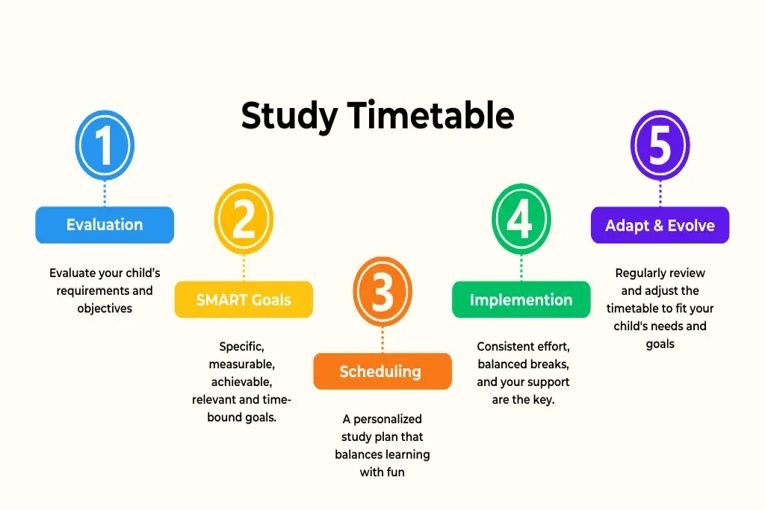Creating a Study Schedule for Children
Establishing a study schedule for children is essential for their academic success and overall well-being. By implementing a structured routine, parents can help their children develop good study habits, improve time management skills, and achieve better academic performance. Here are some effective strategies to create a study schedule that works for children:
Set Clear Goals and Priorities
Before creating a study schedule, it is important to set clear goals and priorities. Sit down with your child and discuss their academic objectives, strengths, and areas that need improvement. Identify the subjects or topics that require more focus and determine the amount of time needed to study each day. By understanding your child’s goals and priorities, you can tailor the study schedule to meet their specific needs.
Establish a Routine
Consistency is key when it comes to studying. Help your child establish a daily routine that includes dedicated study time. Set aside specific blocks of time each day for studying, homework, and other academic activities. Consider factors such as your child’s attention span, energy levels, and extracurricular commitments when planning the study schedule. Encourage your child to stick to the routine to develop a sense of discipline and responsibility.
Create a Study Environment
Create a conducive study environment that is free from distractions and promotes focus. Designate a quiet and well-lit space where your child can study comfortably. Ensure that the study area is organized, equipped with necessary supplies such as textbooks, notebooks, and stationery. Minimize distractions such as electronic devices, loud noises, or clutter that may hinder your child’s concentration.
Break Down Study Sessions
Instead of long study sessions, break down study time into shorter, manageable intervals. Encourage your child to study for 25-30 minutes followed by a short break to rest and recharge. Use a timer to help your child stay on track and maintain focus during study sessions. Breaking down study time into smaller chunks can prevent burnout, improve retention, and make learning more effective.
Include Variety in the Schedule
To prevent monotony and boredom, incorporate a variety of study activities in the schedule. Mix different subjects, study methods, and tasks to keep your child engaged and motivated. Include interactive learning activities, such as flashcards, quizzes, group study sessions, or educational games, to make studying more enjoyable and effective. Encourage your child to explore different study techniques to find what works best for them.
Monitor Progress and Adjust as Needed
Regularly monitor your child’s progress and make adjustments to the study schedule as needed. Keep track of completed assignments, test scores, and academic achievements to assess the effectiveness of the study routine. If certain subjects require more attention or if your child is struggling to keep up with the schedule, be flexible and make necessary changes to ensure continued progress and success.


